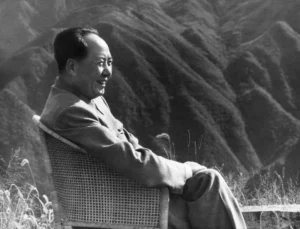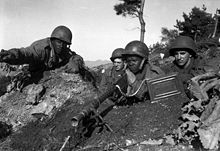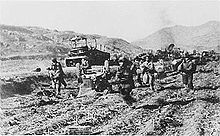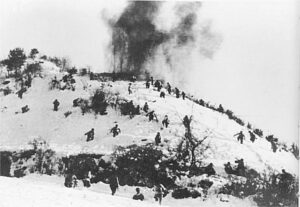The Battle of the Ch’ongch’on River (25th November- 2nd December 1950) was a decisive battle of the Korean War.
A large Chinese army inflicted a shattering defeat on the United Nations (UN) forces in North Korea, forcing them to withdraw south of the 38th Parallel. Which was a massive turning point in events of the Korean War.
After the Battle of Inchon and the Second Battle of Seoul, the US Eighth Army rapidly advanced towards the China-North Korea border along the Yalu River, overrunning the North Korean capital of Pyongyang and forcing the North Korean government to go into exile. The Chinese leader Mao Zedong was alarmed by this, and therefore decided to activate the People’s Volunteer Army and ordered it to intervene in Korea.

Mao Zedong
Between 25th October and 4th November, the Chinese army has fought in a series of battles around Onjong and Unsan, thus forcing the US and South Korean forces to retreat back to the Ch’ongch’on River. General MacArthur (an American military leader who served as General of the Army for the United States). Mistakenly, MacArthur believed that Chinese forces were not operating in Korea on a large scale, believing that only 30,000 Chinese troops could remain hidden in the hills.[1]

Soldiers from the US 2nd Infantry Division in action during late November 1950
In addition, he had the UN warplanes bomb the bridges over the Yalu River (The Yalu River, known by Koreans as the Amrok River or Amnok River, is a river on the border between North Korea and China) to disrupt Chinese troop movements. MacArthur launched the “Home-by-Christmas Offensive” on 24th November 1950 with the goal of routing the last Chinese and North Korean forces on the peninsula. However, there were already over 180,000 Chinese troops in Korea by that time, and the Chinese General Peng Dehuai planned a two-pronged offensive at the Chosin Reservoir and the Ch’ongch’on River.[2]
The Chinese launched a series of surprise attacks along the Eighth Army’s right flank on the night of 25 November 1950, destroying the army’s weak right flank (which consisted mostly of South Korean troops).

Soldiers from the Chinese 39th Corps pursue the US 25th Infantry Division
Chinese forces moved into the UN’s rear areas, and the Eighth Army suffered heavy losses as the Chinese 13th Army attacked the retreating UN forces as they withdrew to the 38th Parallel. The battle was the peak of the Volunteer Army’s performance in Korea, and Mao Zedong would unwisely order his Generals to invade South Korea, breaking the fragile communist supply lines. The Chinese offensives of early 1951 would not meet as much success as their offensives of winter, 1950, and the war would turn into a stalemate.

Chinese forces overrun a U.N. position.
[1] Cumings, Bruce. The Korean War: A History. United States: Random House Publishing Group, 2010.
[2] Appleman, Roy Edgar. South to the Naktong, North to the Yalu. United States: St. John’s Press, 2016.


